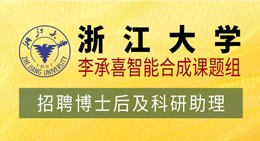Nature Biotechnology ( IF 33.1 ) Pub Date : 2023-02-02 , DOI: 10.1038/s41587-022-01650-2
Peter J Chockley 1 , Jorge Ibanez-Vega 1 , Giedre Krenciute 1 , Lindsay J Talbot 1, 2 , Stephen Gottschalk 1
|
|
Chimeric antigen receptor (CAR) technologies have been clinically implemented for the treatment of hematological malignancies; however, solid tumors remain resilient to CAR therapeutics. Natural killer (NK) cells may provide an optimal class of immune cells for CAR-based approaches due to their inherent anti-tumor functionality. In this study, we sought to tune CAR immune synapses by adding an intracellular scaffolding protein binding site to the CAR. We employ a PDZ binding motif (PDZbm) that enables additional scaffolding crosslinks that enhance synapse formation and NK CAR cell polarization. Combined effects of this CAR design result in increased effector cell functionality in vitro and in vivo. Additionally, we used T cells and observed similar global enhancements in effector function. Synapse-tuned CAR immune cells exhibit amplified synaptic strength, number and abundance of secreted cytokines, enhanced killing of tumor cells and prolonged survival in numerous different tumor models, including solid tumors.
中文翻译:

突触调谐的 CAR 增强免疫细胞抗肿瘤活性
嵌合抗原受体 (CAR) 技术已在临床上用于治疗血液系统恶性肿瘤;然而,实体瘤对 CAR 疗法仍然具有弹性。由于其固有的抗肿瘤功能,自然杀伤 (NK) 细胞可能为基于 CAR 的方法提供一类最佳免疫细胞。在这项研究中,我们试图通过向 CAR 添加细胞内支架蛋白结合位点来调节 CAR 免疫突触。我们采用 PDZ 结合基序 (PDZbm),该基序可实现额外的支架交联,从而增强突触形成和 NK CAR 细胞极化。这种 CAR 设计的综合效应导致体外和体内效应细胞功能增加。此外,我们使用了 T 细胞并观察到效应器功能类似的整体增强。突触调节的 CAR 免疫细胞在包括实体瘤在内的许多不同肿瘤模型中表现出增强的突触强度、分泌的细胞因子的数量和丰度、增强的肿瘤细胞杀伤力和延长的生存期。

































 京公网安备 11010802027423号
京公网安备 11010802027423号